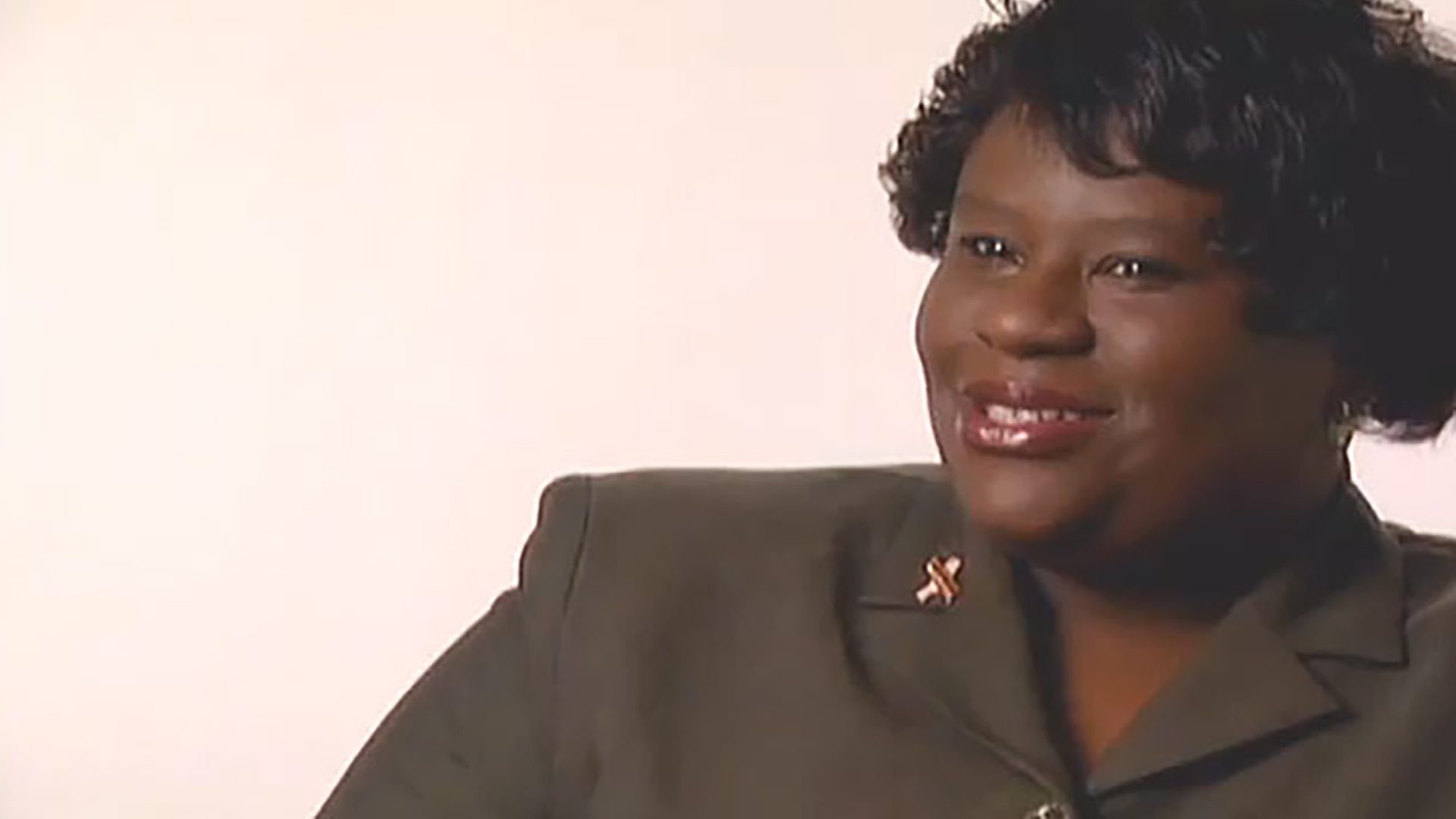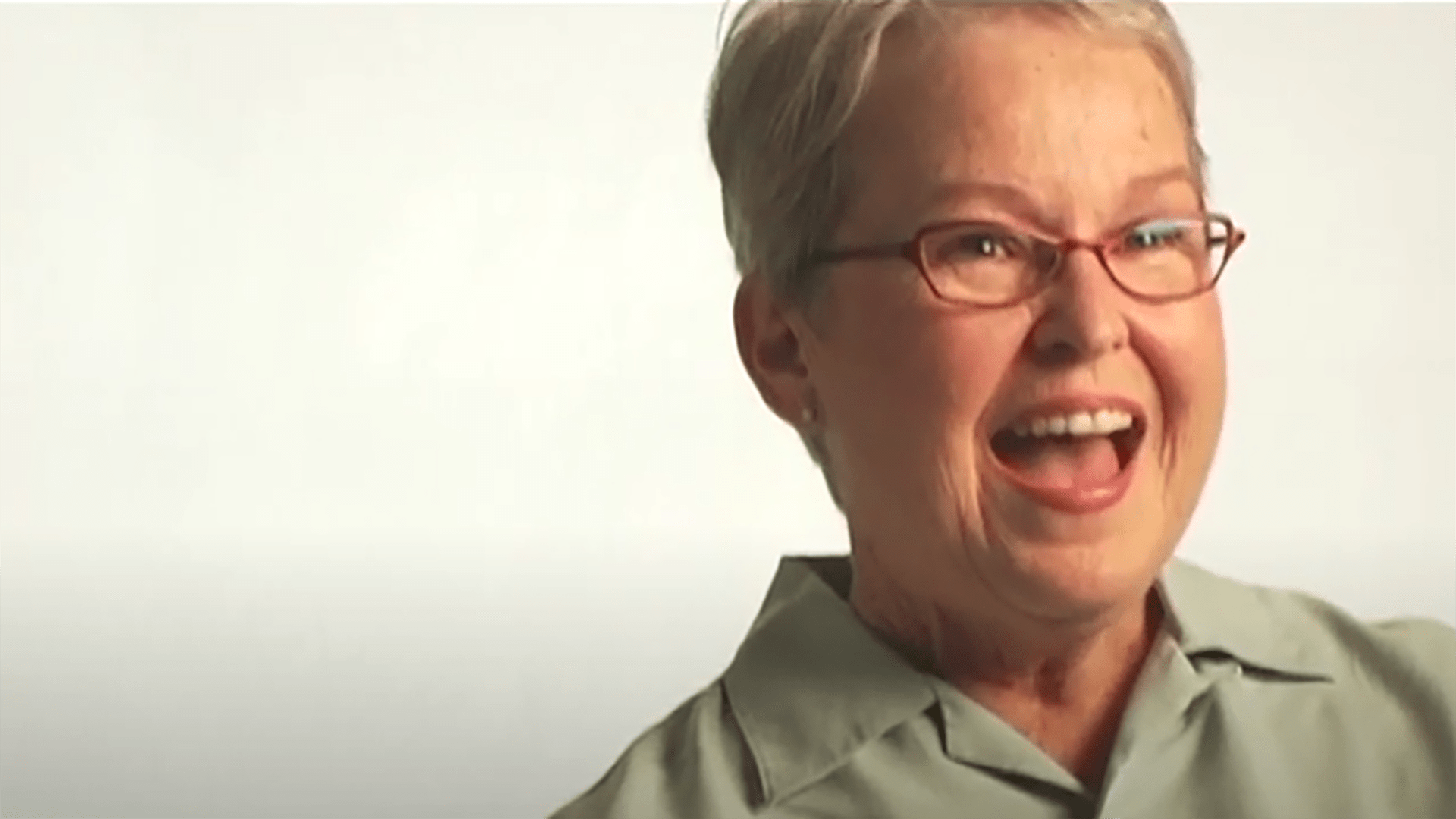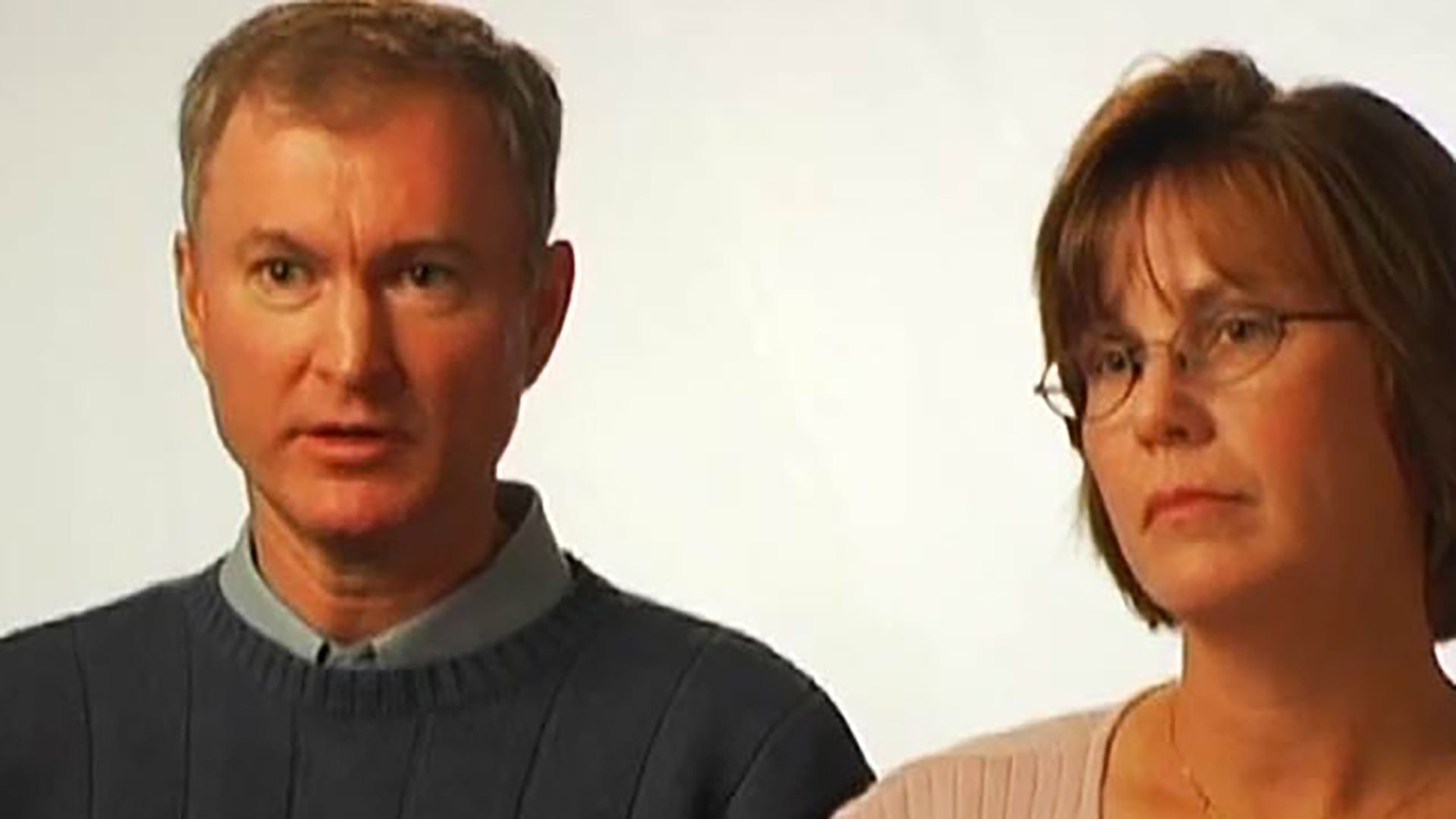Survivor Interview – Tracy B.
Tracy is a breast cancer survivor. She discusses premature menopause and lymphedema as aftereffects of cancer. She shares how she talked to her children about cancer.

The biggest physical condition after being diagnosed was being drawn into premenopausal status and then jumping smack-dab into menopause after having an uvulectomy.
I have hot flashes — my own personal summer. This sort of nervous energy precedes an unbearable and unquenchable heat that I feel from my waist up. When it first happened, I was like, “Whew, a real hot flash. So, this is what people are talking about. The other physical issue that I face is mild lymphedema, particularly when I fly, where my hand and my arm sort of puff up and it’s a little uncomfortable because of the pressure and the tightness. I generally wear a compression sleeve when I fly. With the hot flashes and the compression sleeve, that’s a combination that I could do without. But it works and I’m fortunate enough not to have a severe form of lymphedema. It’s very mild, but it’s still uncomfortable.
After my diagnosis of breast cancer, I made several decisions. The first decision which was fairly difficult for me, and my husband was to have a tubal ligation because of the increased risk of having breast cancer again due to getting pregnant.
The second decision I made was to have reconstruction. I had reconstruction five months after the initial surgery. I had what was called a tram flap, where they take the muscle and tunnel it up from your stomach to where it needs to go to form a breast. I guess I wasn’t listening really to the doctor when he told me all about the surgery, because when I woke up, I didn’t realize I was going to be in so much pain. My husband heard everything and tried to talk me out of having the surgery. But no, I was thinking of a free tummy tuck. So, it was really painful, but the breast was beautiful.
Another decision that I made was to have the reconstruction removed after I began to have complications due to scar tissue under it and having to have multiple biopsies under the reconstruction site. At that time, I also opted to have my ovaries removed. I found that I carried mutations on my breast cancer genes, so I opted to have my ovaries removed because of the fear of ovarian cancer. So that really sealed the fate of me ever having any more children.
None of these decisions were entered very lightly. The process took, I guess, four years. I would educate myself first. I would speak with my health care providers about their recommendations, and I would challenge them to (be) open and honest with me. And I’d include my family in on the decision because cancer is not just my disease. It involves the entire family.
I think when someone is diagnosed, they become the center of attention, whether they want to or not. I think more concentration needs to be on a holistic approach to include the family, because cancer is a family issue. I think you need to tie in some kind of psychosocial support for the husband, the boyfriend, the wife, the girlfriends, the sisters, the brothers, the mothers, the children; so that they understand what I’m going through a little better and know that they are part of this process to help their cancer survivor truly survive.
The biggest emotional issue I’ve dealt with has been the fear of recurrence, because of my genetic predisposition and because of my family history. The fear is sort of looming there and I don’t know when it’s going to happen, but I believe it will. But the best thing for me to deal with that is to continue to educate myself, continue the follow-up procedures and go on and live.
Two things have helped me to survive. One, my mother is a 22-year breast cancer survivor. So, she’s given me living proof that there is life after this.
Second is my spirituality. I believe that God has missions for us and sometimes we have to be faced with a life-threatening illness to figure out what we are supposed to be doing. It became very clear to me that God first gave me the gift of breast cancer, which revealed a bigger gift: my gift to give back and to educate my sisters. We need to be proactive in our health care. We need to be active participants in our health care.
My total life has changed because of my diagnosis. It no longer matters how long I live, but what I do with the time that God has given me. I, at one time, couldn’t talk to people in groups, but it has given me a voice to speak out for what I believe. The small things in life that used to really get to me, I can deal with and move on because those things aren’t important. I realize that my family is important and my interactions with individuals just passing by are important. I was prompted to leave a job that I was fairly secure in, but knew it was not where my heart was.
At the time of my diagnosis, my son had just turned one and my daughter was four years old. My daughter seemed to handle it all well because I think I educated her in a four-year-old way and did not make her fear what was going on with me. I told my daughter that I was going to be in the hospital, and I was going to be a little sick for a little while, but I was going to be okay. And I just told her a little bad cell was in me, and they had to get it out and explained that I was only going to have one breast, but I was still going to be Mommy.
When my hair started to fall out, I looked in the mirror and I saw my brother, and I was afraid to let my children see. I didn’t really know if my son would understand and know it was me. My daughter burst in the bathroom and starts laughing, “Mommy, you have a bald head!” So, she was okay with it, but I was still a little bit apprehensive about my son. I finally let him see and he still knew me, so that made me feel really good. I would wake up in the morning with wet kisses on my cold, bald head and I would be okay, because he still loved me just the same. I think you need to explain to your children what’s going on. Bring your children into this experience and offer them information as they ask for it. I would not press it onto them if they are not ready for it. We truly underestimate what little ones can understand, and I think it eases their spirit when they know what’s going on.
I think only a cancer survivor would know how another survivor’s feeling. The fears, the frustration, even joys of conquering it. There’s a happiness and a feeling that comes over you to know that you are done with chemo, but then there’s also a fear that you “are” done with chemo and you’re not going to see your doctor every day or every week. Those are things only a survivor is going to know.
Survivorship means that I have beat this disease. The moment that I was diagnosed, I had already beat it. I may have to go through this again, but I survived it once and I have to continue to live despite it all. I can’t not fight because I have something to do here. I think it’s truly important that survivors give living proof that there’s life after this.
My name is Tracy Cook-Brewton. I’m 33 years old, and I’m happy that I’m a six year, nine months and 21-day survivor.

